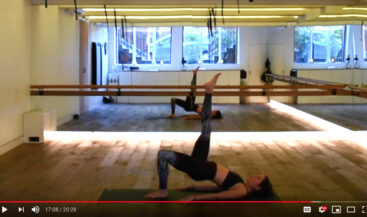I am a people pleaser. I have been one for as long as I can remember, although I perhaps wasn’t always so acutely aware of my tendencies. Looking back on my life I can pin-point situations that possibly encouraged this behaviour: jealousy of a brother who seemed to get more love and attention than me, a father who joked about always doing better, an unhealthy relationship growing up with my mother, constantly moving and having to readapt and make new friends, and a never-ending fear of not fitting in.
I have long been aware of my behaviour, but it wasn’t until recently that I began to realise the impact this behaviour was having – on my relationships, on my work, on my mental health. If you are at all like me, I hope you find the following insightful and helpful.
Signs You Are a People Pleaser:
- You fear confrontation
- You put the needs of others before your own
- You resent giving and not getting in return
- You feel guilty when you focus on yourself
- You allow others to take advantage of you
- You struggle to say “no” even when you don’t want to do something
- You overwhelm yourself with things you need to do
- You are indecisive
- You apologise a lot
- You feel drained or burnt out
- You struggle with concerns about the future and the unknown
- Will compromise who you are in order to be liked
Opportunities to stop People-Pleasing:
- Take a moment to consider all of the times you did something when you didn’t want to, just to be complacent (awareness).
- When someone asks you for something, give yourself a moment to really consider whether you want to do it and why.
- If you say yes, are you being fair to yourself and the person you are saying yes to? (If there is guilt or resentment, there is no positive outcome from you saying yes)
- Stop apologising. Notice the times you say “I am sorry” and what that apology implies. Don’t over-apologise when you cannot do something for someone else, but rather explain yourself and your position.
- Recognise when people get upset at you saying “no” and ask yourself if you should be surrounding yourself with people who cannot respect your boundaries.
- Ask for help. Whenever we struggle, with anything, it is always important to be open and ask for help.
Boundaries & The Power of “No”
There seems to be a direct correlation between people pleasing and boundaries. Throughout life, it is vital for us to know and understanding what our limits are. Unhealthy boundaries cause emotional pain that can lead to things like co-dependency, depression, anxiety, and even physical illness caused by stress. Loose boundaries lead to disconnected relationships.
So how can we start to set healthy boundaries?
- Know your limits & how you are feeling – what makes you feel frustrated, uncomfortable, resentful?
-
- Resentment tends to come from a feeling of being taken advantage of or not being appreciated
- When you feel uncomfortable it may be a sign that someone is pushing your boundaries
- Hone in and honour how you feel
- Give yourself permission to stand strong – we tend to be scared of how people will react if we set boundaries, especially family members. Our boundaries reflect our self respect, remember this.
- Look at your relationships and the role you play – if you were raised to be the caretaker in your family, ignoring your needs would have become the normal thing to do for you
- Don’t Compare & Compete – often we see what others are doing and set the expectation to go above and beyond (this is common at work but also amongst mothers, etc)
- Start small, one step at a time – establishing and asserting your boundaries takes practice. set small boundaries to begin with and build up from there.
- Keep the focus on yourself – don’t over explain, defend or debate, but make sure when you do explain, you keep the focus on you.
- Set consequences – there must be consequences to the boundaries you set, stating why your boundaries are important.
Boundaries are a sign of our SELF RESPECT. When we learn to respect ourselves, we set the tone for how everybody else treats us and our people-pleasing ways diminish. It takes time. It takes practice. The good news is that these unhealthy characteristics/habits are learnt, which means they can be unlearnt. It starts with awareness, all growth starts from awareness. You deserve this. You are worth this. You’ve got this.





